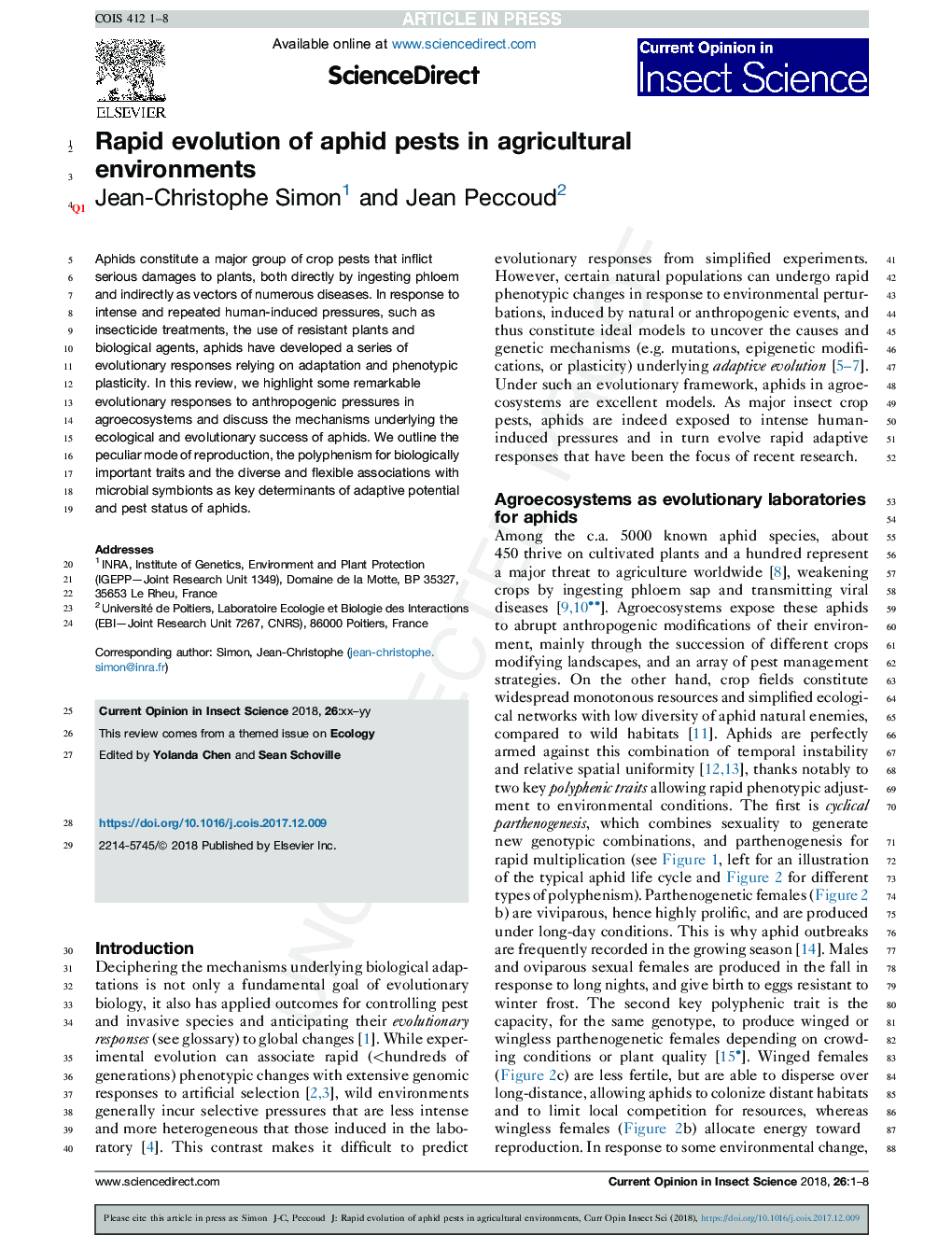| Article ID | Journal | Published Year | Pages | File Type |
|---|---|---|---|---|
| 8878505 | Current Opinion in Insect Science | 2018 | 8 Pages |
Abstract
Aphids constitute a major group of crop pests that inflict serious damages to plants, both directly by ingesting phloem and indirectly as vectors of numerous diseases. In response to intense and repeated human-induced pressures, such as insecticide treatments, the use of resistant plants and biological agents, aphids have developed a series of evolutionary responses relying on adaptation and phenotypic plasticity. In this review, we highlight some remarkable evolutionary responses to anthropogenic pressures in agroecosystems and discuss the mechanisms underlying the ecological and evolutionary success of aphids. We outline the peculiar mode of reproduction, the polyphenism for biologically important traits and the diverse and flexible associations with microbial symbionts as key determinants of adaptive potential and pest status of aphids.
Related Topics
Life Sciences
Agricultural and Biological Sciences
Agronomy and Crop Science
Authors
Jean-Christophe Simon, Jean Peccoud,
